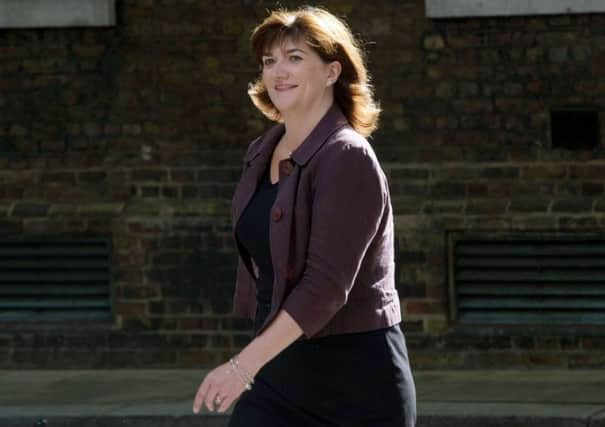Morgan urges more students to chose maths and sciences at A-level


For years, take-up of maths and science after age 16 was far too low, the Education Secretary suggests, with many teenagers still unaware that these subjects are becoming increasingly important for more and more careers.
Ms Morgan’s comments came at the launch of a new independent campaign which aims to increase the numbers of students taking maths and physics at A-level by 50 per cent over the next three years. As little as a decade ago, young people were being told that maths and sciences were the subjects you did if you wanted to go into a specific career, such as medicine, pharmacy or engineering, she said.
Advertisement
Hide AdAdvertisement
Hide Ad“If you wanted to do something different, or even if you didn’t know what you wanted to do, then the arts and humanities were what you chose, because they were useful, you were told, for all kinds of jobs.
“Of course we know now that that couldn’t be further from the truth. That the subjects that keep young people’s options open and unlock the door to all sorts of careers, are the STEM subjects - science, technology, engineering and maths.”
The skills someone gains from studying these types of subjects are useful in almost any job, Ms Morgan argued - including the creative and beauty industries and even the legal sector.
“That’s why I believe it is so important that young people are aware of the opportunities that these subjects bring. Because they are not nearly as popular as they should be.”
Advertisement
Hide AdAdvertisement
Hide AdFigures show that in 2011, less than a fifth (19 per cent) of girls who scored an A* in GCSE physics went on to study the subject at A-level, while for boys the figure was under half.
And fewer than two-thirds of girls who achieved the top grade in GCSE maths took the subject at A-level.
“These figures show us that too many young people are making choices age 15 which will hold them back for the rest of their lives,” Ms Morgan said.
She insisted that the Government has made “significant” progress, with around 1,000 more girls taking physics each year along with 2,000 more taking maths compared to 2010.
Advertisement
Hide AdAdvertisement
Hide AdMaths is also now the most popular A-level subject, and there has been an increase in entries for the sciences. But Ms Morgan said that more needs to be done, and the new Your Life campaign will help to “dispel the myths” around STEM subjects.
“They’re not stuffy, boring subjects for people who don’t get outdoors much, far from it,” she said. “They are key, cutting edge, fast-paced areas of work, and they’re behind some of the most exciting new developments in this country and around the world.
“Nor are they subjects that you can only succeed in if you went to the right school, or had the right connections. In fact, quite the opposite. Success in the sciences is one of the biggest drivers of social mobility, enabling young people from a range of backgrounds to access highly paid careers and opportunities.”
Ms Morgan also said that there needs to be action to boost the number of young women studying maths and science.
Advertisement
Hide AdAdvertisement
Hide Ad“If we want to make the most of half of our workforce if we want to eliminate the gender pay gap and we want that same half of the workforce to succeed in jobs that boost our economy, we must make sure that teenage girls don’t feel, and certainly are not told, that certain subjects are the preserve of men,” she said.